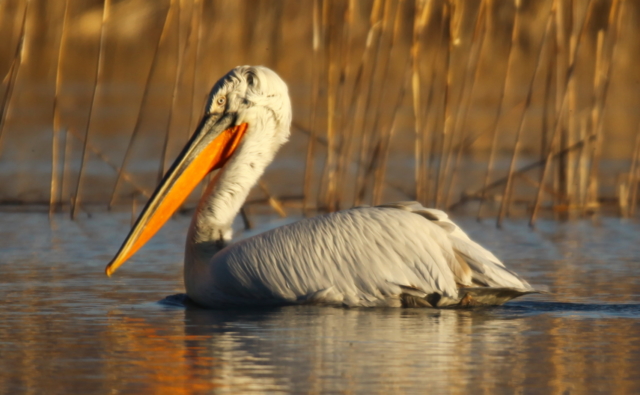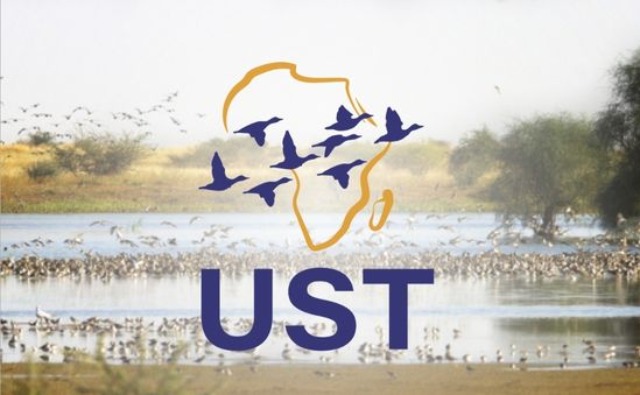Nature reserve management bodies (PACA Nature Area Conservancy, Tour du Valat, National Nature Protection Society, Friends of the Vigueirat Marshes, Alpilles Regional Natural Park, Bouches-du-Rhône Chamber of Agriculture), although they fully support the ambition of an energy transition and the decarbonisation of industrial activities in order to combat climate change, are nevertheless opposed to the project for a 400,000-volt overhead EHV line between Fos-sur-Mer (13) and Jonquières-Saint-Vincent (30).
As part of its commitment to reindustrialising France, the French government has set the goal of decarbonising the economy and human activities, which includes the “Operation of National Interest” at the Fos-sur-Mer Industrial Port Zone. This is one of the largest such zones in Europe, with major steel and petrochemical sites, refineries, and LNG terminals, and it currently produces significant CO2 emissions. This economic zone is recognised as a major industrial employment hub in the region, and will be developing new activities, including the production of hydrogen and photovoltaic solar energy. In addition, the increasing population in the Marseille area and the growing industrial, economic, and tourist needs (development of data centres, electrical connections for cruise ships) are generating significant electricity requirements.
The organisations that manage nature reserves fully support an energy transition and the decarbonisation of industrial activities to combat climate change. However, it is essential that this energy transition, which involves not only the development of renewable and low-carbon energies but also greater energy sobriety and efficiency, does not run counter to the overall ecological transition. To achieve this goal, it must guarantee the preservation of our natural, ecological, and landscape heritage, as well as the quality of life of our citizens.
RTE (French electricity transmission operator) project – 400k EHV line
Today RTE is submitting for consultation a project for the construction of a 65 km, 400k volt overhead power line between Fos-sur-Mer and Jonquières-Saint-Vincent. Likewise, RTE has proposed a study area that was presented to the various stakeholders at the first meeting of the local consultation body set up for this purpose on 16 November 2023. This study area was validated by the French government (letter from the Bouches-du-Rhône Prefect dated 23 January 2024).
Part of this study area overlaps the Coussouls de Crau National Nature Reserve, the “Crau verte” area, the Camargue Delta, the Vigueirat Marshes National Nature Reserve, the Beauchamp Marshes in the commune of Arles, and part of the Alpilles and Camargue Regional Nature Parks.
RTE is now working on defining the preferred routes. Two alternative installation paths have been proposed: an “Eastern Route” and a “Western Route”, with eight possible combinations.
From 12 February 2024 to 7 April 2024, RTE held public consultations on this project, under the aegis of the Bouches-du-Rhône Prefect. This consultation was supposed to inform the public and elucidate the best route for the future electrical installations that would have the least environmental impact.
Position of nature reserve management bodies
The six nature reserve management bodies that are signatories to this paper are commissioned by the public authorities (State or Region) to ensure the preservation of exceptional natural areas. Maintaining the biological diversity of these sites is inconceivable without preserving the landscapes that surround them and the ecological continuity that is essential for the movement of species.
As part of this consultation process, the managers of the nature reserves likely to be impacted by the EHV power line project wish to inform the public and all stakeholders of the serious risks of damage to the area’s remarkable biodiversity.
Considering the information provided by RTE, the signatories note that:
- The project concerns an area of exceptional biological diversity, consisting of the Crau, the Camargue, and the Alpilles, known throughout Europe as the “Golden Triangle of Biodiversity,” whose protection must be considered a major public issue, of at least the same importance as the decarbonisation objective targeted by the project;
- Whichever of the variants proposed during the consultation process is chosen, the project is highly likely to have a major direct or indirect impact on national and regional nature reserves that are protected by regulations;
- These impacts concern numerous natural habitats of community interest, such as dry grasslands and wetlands, including several Natura 2000 sites classified as Special Areas of Conservation under the Habitats Directive and designated as Special Protection Areas under the Birds Directive;
- These impacts, particularly those linked to the risk of collision, also concern numerous protected and endangered species covered by national action plans, such as the Little Bustard, the Pin-tailed Sandgrouse, Bonelli’s Eagle, the Eurasian Bittern, as well as many other rare or emblematic large bird species of the Camargue, such as the Spotted Eagle, the Common Crane, the Greater Flamingo, the Eurasian Spoonbill, White and Black Storks, and Geese and Ducks.
- The project is located on migration routes of international importance and poses a threat to many migratory species as well as to ecological continuity. In addition, the protected areas managed by our organisations are located on both sides of the Rhône, generating numerous movements of bird and chiropteran species, and consequently increasing the risk of collision with an aerial structure such as the one planned;
- The overhead cable project will have a major impact on the landscape in heritage areas in which the landscapes are quite flat;
- The project is likely to have a high impact on the already fragile agricultural sectors, which are essential to the region’s economy and linked to its biodiversity;
- The alternatives have not been studied satisfactorily, either in terms of technology (cables buried or installed beneath rivers) or in terms of energy production (production on already developed sites within the Greater Marseille Sea Port).
Based on these observations, the signatories consider that the risks associated with this project are not compatible with the exceptional nature of the biodiversity and landscapes of this sector. Therefore, they express their opposition to the overhead power line project concerned by this consultation.
They also request that:
- In view of the many past and future development projects in the Camargue, Crau, and Alpilles, and the pressures and damage they have caused or are likely to cause, studies of the cumulative effects of all the projects should be carried out before any new development decision is made;
- All infrastructure projects (the Arles motorway bypass, the road linking Fos and Salon, the Barcarin ferryboat, the extension of the CLESUD logistics platform, the EHV line, and the GRT Gaz pipeline) should be discussed within overall ecological planning for this area.
 |
 |
 |
 |
 |
 |
 |
 |
 |
 |
 |
 |



